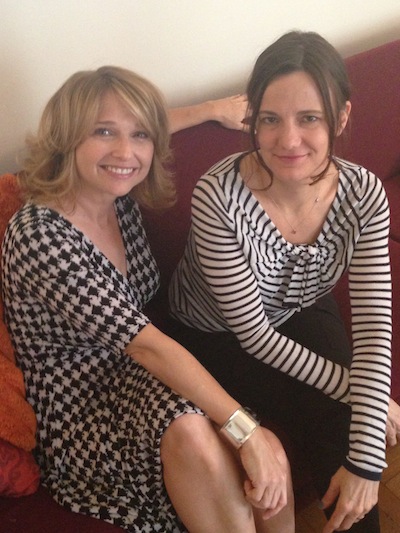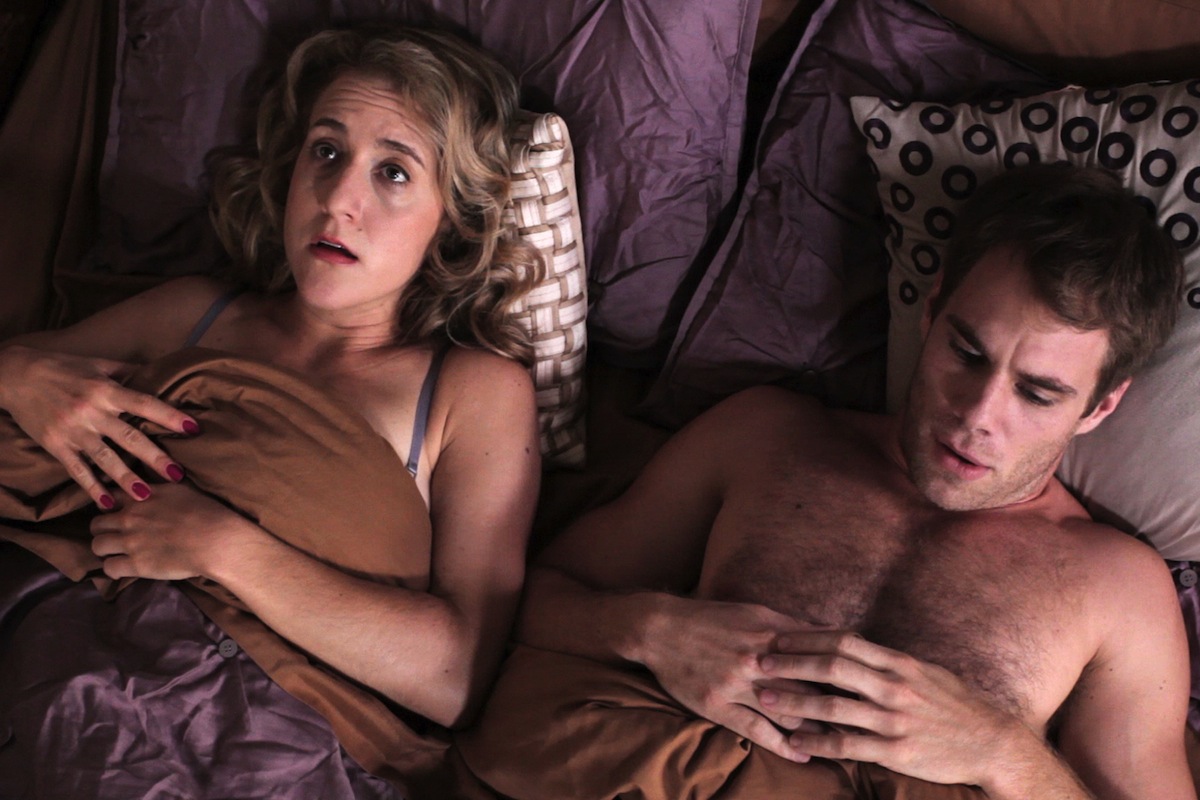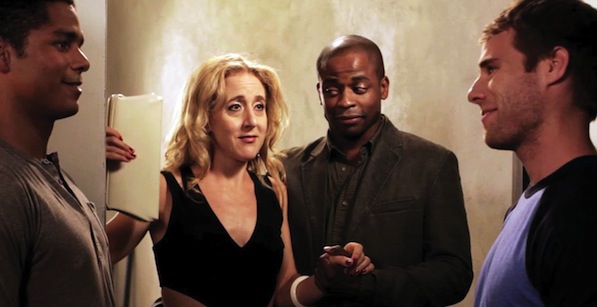There is no arguing that since the launch of their women-driven production company Tangerine Entertainment earlier this year, industry veterans Amy Hobby and Anne Hubbell have been very busy not only producing films but also working the film festival circuit. From Sarasota to Ebertfest to Cannes, they have been spreading their gospel that Tangerine’s agenda is clear and specific—aimed at increasing the presence of smart, complex women both behind and in front of the camera.
Tangerine’s first feature, Lucky Them, directed by Megan Griffiths and starring Toni Collette, Thomas Haden Church, Oliver Platt and Amy Seimetz, is expected to hit the Fall festival circuit and will set the tone for a slate of projects to shoot later this year and well into 2014.
On their return from the Cannes Film Festival, Keyframe caught up with Hobby and Hubbell to discuss their company, their plans for raising the visibility of women in film and, hopefully, world domination.
Keyframe: What made you decide to start Tangerine Entertainment?
Anne Hubbell: We wanted to create a company and a brand that not only would make interesting films but could also help make a difference in the industry.
Amy Hobby: We had been talking for a long time about starting a production company and we wanted to do something that made it different. But we didn’t want to make movies with just worthy content. One day Anne came in and said… ‘We should work with more women.’ We knew it was tough for women in the industry but when we looked at the statistics, they are dreadful… only five percent of directors are women.
Hubbell: But also inspiring! Because we felt if it was something we could really get behind and felt personally about, it would be a good way for us to have a company with a brand without limiting our subject matter and still doing something to help change how movies are made.
Keyframe: Had you worked together before?
Hubbell: We had known each other for a long time but had never worked together. In 2011, an opportunity came up for us to work on a small, narrative, comedic feature, and we rolled up our sleeves and produced Jonathan Lisecki’s Gayby.
Hobby: The film premiered in competition at SXSW, went on to a theatrical release and was nominated for a Spirit Award 2013. It did incredibly well on iTunes and sold internationally.
Hubbell: We knew we worked well together and we respected each other, and it was good for us to get our hands dirty in that way.
Keyframe: What are the toughest challenges for women filmmakers?
Hubbell: I think that women in the film industry face the same challenges that women in any industry face. It’s less about this industry specifically, and more about just giving women a chance, and recognizing their talents and accomplishments and abilities, as you would anywhere else.
Hobby: One thing we’re trying to do for women filmmakers is to work with women investors. While it’s one of many challenges that women face, one of the challenges is financing, as it is with other filmmakers. But if we can get women to support women on the finance side, we think that we can make a big change.
Keyframe: What Tangerine projects are in the pipeline?
Hobby: We have a comedy in post-production and an international omnibus of short films, folktales, from around the world, as imagined by Sara Driver, a New York-based filmmaker. Those short films are being directed by many directors and talent from around the world.
Hubbell: We have a couple of smaller projects that we’re circling because we’re hoping to be involved as executive producers and sometimes bring advice or a small amount of financing for other projects.
Keyframe: How do you evaluate projects that are pitched to you?
Hubbell: We do accept submissions—we like to see a look book and examples of previous work. We have a pile of scripts right now so we’re a little backlogged there. And then of course we’re getting suggestions from other filmmakers and other producers. But in terms of what we are really focusing on as a company: we’re looking at character-driven work, we talk about audacity a lot, new takes, new voices, a new setting we haven’t seen before, something that will stand out and be different and take a chance. And then we also consider marketability.
Keyframe: How many projects a year are you planning on producing?
Hobby: Well, our involvement in projects vary; some films we will find a piece of financing, some films we may come on later and help with the marketing and outreach, and brand the film to our company, some films we may very closely oversee, so it will vary between a minimum of two and could be as many as five or six.
Keyframe: What would be your dream scenario for your films/filmmakers?
Hobby: Our company and projects are awards driven, so our dream scenario is to take a film to the Oscars, whether it’s in best international film, or a shorts category. Our goal is to support and help our filmmakers—if they want to—cross over to studio films, break into the industry at large and stay with the brand and continue to mentor and work with other filmmakers: ideally keep the cycle going.
Keyframe: Are you yourself interested in producing new media projects?
Hubbell: Very much. We’ve been talking to a couple of investors, in fact, that may be interested in working with us. Obviously one of the challenges there is recoupment or monetizing this project. We’ve been looking at that but we’re very much interested in multi-platform work, experiential storytelling. Independent narrative films have really been our wheelhouse but we’re learning more, and we’re really interested in developing some work that’s outside the traditional theatrical or at-home watching experience.
Keyframe: Does Tangerine Entertainment have other goals?
Hubbell: In addition to making films by women, we want to help educate the industry and also the general public about the need for more women directors. In an effort to do that and also build audience for our work, we developed Tangerine Movie Night, which is a collective watching experience. We’ll pick a film, add some background about the film and why it’s important or interesting to us, and it will be streamable or rentable so that people can watch it in their homes, on their iPads, or however they want to watch movies, have a discussion, and create a community around the idea of supporting women directors.
The goal is two-fold for us because we want to educate people and call awareness to the lack of women directors but we also want to build a brand and create audience. For us it’s a way for us to reach people year-round and let them know what Tangerine is doing and also hear directly from our audience.
Keyframe: Any final thoughts?
Hubbell: We’re excited to be working with Fandor, and we also are hoping that other companies will see it as good business to be reaching out to this audience. We’re lucky enough to have the company noticed by Wall Street Journal, and Forbes, and part of the Tangerine mission is for people to understand that women making movies is good business, you know, and that’s why we’re cultivating investors, and cultivating audience, to show that there’s no reason financially that women shouldn’t be making films.
This audience that we’re creating and tapping into is one that can be beneficial for us, for other filmmakers, and for other businesses. I think that’s kind of important for us, that we talk about what we want to do in terms of the films we’re making, but we also have a very responsible way of looking at the business side of things, in terms of investment and recoupment.
Tangerine Movie Night is brought to you by Fandor.






